- Home
- Harry Harrison
Stars and Stripes Triumphant sas-3 Page 15
Stars and Stripes Triumphant sas-3 Read online
Page 15
High explosives smashed into the defenses, sending guns, masonry, and pieces of men hurtling out from the maelstrom of death that was spread by the heavy shells. A cavalryman, clutching his wounded arm, galloped his horse through the empty streets to the central telegraph office. He hammered on the sealed door with the pommel end of his saber until he finally broke it open. A terrified operator soon appeared, sat down at his machine still wearing his nightclothes, and sent word of the invasion to London.
For the first time in over eight hundred years, Britain was being invaded. Shock — and then horror — spread through the island. The barbarians were at the gate.
General Sherman had set up his headquarters in the customhouse in Cork City. This was a handsome white stone building that stood at the very end of the island on which the center of the city had been built. From the tall windows he had a fine view of the river Lee. The North Channel and the South Channel of the river joined together just before his windows, blue and placid, flowing out into Cork Lough. Filled now with the varied ships of the southern invasion fleet. The transports were close in, many of them tied up at the city’s wharves. Farther down the river, in Cork Harbor, were the ironclad ships of war, with others on patrol farther east where the river met the sea. Enemy warships had probed in this direction, but were driven off long before they could observe a thing. As much as possible all ship movements had been kept secret — other than the few chance observations that could be expected. The Americans had proclaimed publicly that they were protecting Irish shipping from the incursions of foreign powers. The British protestations about entry into their coastal waters were pointedly ignored.
General Grant entered the room and looked at the large MAY 20 displayed on the calendar before he sat down across the desk from General Sherman. He ran his fingers thoughtfully through his thick beard.
“May the twentieth,” he said. “Dublin telegraphed as soon as the last ships sailed. Barring breakdowns at sea, the city of Liverpool will have come under attack this morning.”
“A percentage of ship losses was allowed for in the operating orders,” General Sherman said. “So the attack will have gone ahead as planned.”
“When will we know anything?”
“It will be hours yet. Only after all strongpoints have been taken and the first trains seized will word be carried back to Dublin by the fastest vessel. They’ll know first, then will telegraph the news on to us.”
Sherman nodded his head toward the open door and telegraphists working in the room across the hall. Wires were festooned from the ceiling and ran out of the window, connecting them to the central post office and the fleet.
“The waiting is not easy,” Grant said. He took a black cheroot from his breast pocket, struck a sulfur match, and lit it.
“It never is,” Sherman said. “But patience must be our watchword. One thing we can be sure of is that word of the attack will be telegraphed to London by now. Undoubtedly they will want to order instant mobilization. We must allow them at least one day to find out what has happened, then to come to a decision as to what must be done.”
“That will be tomorrow, the twenty-first.”
“It will indeed. And I am also allowing that one day for confusion. The government must sit, plan, seek advice, run to the Queen, and back.”
“You estimate that an entire day will pass like that before any firm actions are taken by them?”
“I do.”
Grant puffed out a cloud of smoke, looked unseeingly out of the window. “You are a man of decision, Cumph. I would not like to be in your position and be responsible for the progress of this war. I would have continued the invasion at once.”
“Then again perhaps you would not, if you were in my shoes. It is a command decision — and once made it cannot be altered. In London, evaluations will have to be made as well, orders written and transmitted. Their thinking will have to change completely, which is never an easy thing to do, because they have never been in this position before. For the first time their armies will not be attacking — but defending. Of course, there is always the possibility that plans have been made for such an eventuality. But even if they have plans, they will have to be unearthed, examined, modified. If anything, I think that I am being overly conservative in allowing only a single day for confusion. But it is too late to change all that. I am sure that tomorrow will be a quiet day for all the enemy forces in the country. I am positive that meaningful movement of troops will not happen until the twenty-second.”
“And then they will all be marching toward the Midlands to counter the invasion.”
“They will indeed,” Sherman said; there was no warmth in his smile. “So it will be on the twenty-third that you will sail with your men.”
“I look forward to that moment, as do all the troops. By which time we will surely have been informed how the first invasion, at Liverpool, is proceeding.”
“I am counting upon you to drive your attack home.”
“I will not fail you,” Grant said in an even voice that was firm, even gruff. He would get the job done all right. Sherman knew that if any general in the entire world could succeed, it was Ulysses S. Grant.
As soon as the Liverpool fortifications had been leveled and the guns silenced by the naval fire, the transports of the invading army tied up one by one at the city’s central docks. The ships that were already berthed there had their hawsers unceremoniously cut and were towed to the Birkenhead side of the river, where they were run aground. Even while this was happening the gangways on the Irish ships were dropped. The first men ashore were Irish riflemen, who fanned out in defensive positions and took shelter from any counterattack. They were scarcely under cover before the loading ramps of the special transports were extended and the American cavalry galloped out into the morning light.
Within an hour the waterfront was secured while the attackers fanned out through the city. There were pockets of resistance, which were swiftly reduced because after the cavalrymen left the transports and charged forward into battle, the cannon were unloaded. As they emerged they were prevented from too fast progress down the ramps by restraining ropes that were wrapped around deck winches. Slowly and carefully they were rolled down onto the dock. The horses were in their traces within minutes. The Gatling guns, being much lighter, were manhandled down the ramps to the dockside, where their horses were hitched up. The cannon, with caissons and limbers attached, were soon ready to go into battle as well. The advance continued into the city, slowly and inexorably.
General Robert E. Lee had set up his headquarters close by the Mersey. Runners, and an occasional cavalryman, brought their reports to him.
“There is a strong defense at the barracks, here,” Colonel Kiley said, touching his finger to the map of the city spread out on the table.
Lee nodded. “That was to be expected. Were they bypassed?”
“They were indeed, General, just as you ordered. A company left behind to keep up fire, along with two of the Gatling guns.”
“Fine. Get a battery of guns down there to clear them out.”
While the attack into Liverpool was slow and precise, the spearhead of troops launched against Lime Street Station was not. The cavalry had galloped ahead, cutting through any determined defenses, charging on. Pockets of resistance were bypassed, leaving the infantry to mop them up. The mobile Gatling guns sent torrents of bullets into any troops bold enough to stand in their way. It was the station, the trains, the marshaling yards that had to be seized intact at any cost. Lee only relaxed, ever so slightly, when the reports reached him that the primary targets had been taken.
“I am moving my headquarters to the station as was planned. Send runners, see that all units are informed.” He stepped aside as officers hurried to roll up the maps.
“This operation will now move into the second and final phase. General Meagher and the Irish troops will begin leaving as soon as possible.” He waved over a cavalryman and passed him the message he had just writte
n.
“Take this to the commander of the Darter. He is to get under way for Dublin at once.”
The officer saluted, then vaulted into his saddle and galloped to the ship. Lee nodded after him.
Everything was going just as they had planned.
THE SWORD IS DRAWN
It was like using a steam hammer to crack a nut: the forces employed were well out of proportion to the chosen target. Yet the success or failure of the entire invasion depended upon the simple act of getting one man ashore at the right place in Cornwall — armed with a single vital tool. USS Mississippi and USS Pennsylvania were chosen for the task. They were newly built and improved ironclads of the two-turret Monitor class. Like their predecessor, Virginia, they were named after states of the Union. The politically aware Navy Department made sure that they were named alternately after a Northern and a Southern state.
The two ironclads had raced ahead of the rest of the armada when it left Cork harbor. Steaming due south, they did not turn east until they had crossed fifty degrees north latitude and were at the mouth of the English Channel. After this they kept a course well south of the Scilly Isles; the islands were seen just as small blurs on the horizon to port. It was late in the afternoon by this time, and they slowed their progress until dark. Now was the time of greatest peril: they were less than forty miles away from Plymouth, the second-largest naval base in the British Isles. The lookout posts were double-manned and the men swept the horizon continuously. There were fishing boats close inshore, but these could be ignored. It was the British navy that they were concerned with; for good reason. Surprise was of the essence.
It was growing dark when Mississippi sent a signal to Pennsylvania. She was sailing well ahead of her sister ship, as well as standing farther out to sea. This positioning was deliberate — and vital — as her brief message reported.
Unidentified naval vessel sighted ahead. Am intercepting.
Even as she was sending the report, Mississippi was belching out clouds of smoke as she gained speed. On a southeast course. When she was seen, if chase were given, the action would take place well out of sight of the Pennsylvania.
The plan succeeded. Night fell. Now, unseen in the darkness, with her engine barely turning over, the American warship crept in toward the Cornish shore.
“That must be the light at Zone Point,” the first officer said as they neared the coast. “It’s at the mouth of Falmouth Bay — and those will be the lights of Falmouth beyond.”
“Steady on your course,” the captain ordered.
It was just after midnight when they slipped past St. Austell and into St. Austell Bay. When the gaslights of the town were behind them, the engines were stopped and the ship drifted forward, the light waves slapping against her iron sides.
“Landing party away.”
There was the hammer of running feet on deck. Moments later there was the slight creak of the well-greased davits as the two boats were slung over the side and lowered down into the sea. The sailors went down the rope ladders first, ready to help the clumsier soldiers into the waiting boats. The telegraph men were next, followed by the rest of the party. Their rifles were unloaded and their ammunition secured in closed pouches. It would have to be silent gun butts and bayonets if they encountered any resistance.
Hopefully they would not. This part of the coast had been selected for two very important reasons. Most of the land adjoining the coast here was forest, private land, where deer roamed freely. It should be deserted at night, for there were no farms or other habitations nearby, here where the rail line ran between the shoreline and the steep hills. And this train track was the reason they were here.
Cornwall has a rocky spine of hills running the entire length of the peninsula. When the Great Western Railway left its westernmost terminus in Penzance, the tracks turned inland, away from the sea. Through Redruth and Truro they went, then on to St. Austell, where the tracks came in sight of the sea again, well over halfway from Penzance to Plymouth. Skirting the bogs of Blackmoor, the rail line ran along the shore for some miles before turning inland a final time. This stretch of line was their target.
The boats grated on the gravelly shore. There were whispered commands as the sailors jumped into the knee-high surf and dragged the boats farther up onto the beach. A waning moon provided enough light for the disembarking soldiers. One of them fell with a clatter as his gun crashed onto the pebbles. There was a quick yelp of pain as someone trod on his hand. He was pulled to his feet and all movement stopped at the officer’s hissed command. The night was so silent that an owl could be heard hooting in the trees on the far side of the single railroad track. Its rails gleamed silver in the moonlight.
Next to the tracks was a row of poles that carried the telegraph wires.
“Sergeant, I want men posted left and right, twenty yards out. And quietly this time. Telegraph squad, you know what to do.”
When they reached the rails the telegraph men divided in two, with one squad walking down the ties to the east. Even before they had vanished into the darkness, the man delegated for this task was belting on his climbing irons. Up the poles he went, swiftly and surely, the pointed ends of his irons thokking into the wood as he climbed. The sharp click of wire cutters sounded and there was a rustle as the telegraph wires fell to the ground.
“Gather up the wire,” the sergeant said quietly. “Cut it free and throw it into the ocean.”
A hundred, two hundred yards of wire were cut out and dumped into the water. The soldiers had finished their appointed task and returned to the boats long before the second party. The men fidgeted about until the sergeants hushed them into silence. The lieutenant paced back and forth, tapping his fingers restlessly on his pistol holster, but did not speak aloud. The wire-cutting party had been told to proceed down the track for fifteen minutes, or as near as they could judge the time. They were to cut down another section of wire there and return. It seemed well past the allotted time now; it probably was not, he realized.
Private O’Reilly, one of the sentries stationed by the track, saw the dark figure approaching. He was about to call out when he discerned that the man was coming from the west — while the second wire company had gone east. O’Reilly leaned over and pulled the corporal by the sleeve, touching his forefinger to his lips at the same time. Then he pointed down the track. The two soldiers crouched down, trying to blend into the ground.
The figure came on, strangely wide across the shoulders, whistling softly.
Then he stopped, suddenly aware of the dark forms ahead of him beside the rails. In an instant the stranger turned and began to run heavily back down the track.
“Get him!” the corporal said, and led the way at a run.
The fleeing man slowed for an instant. A dark form fell from his shoulders to the tracks. Freed from his burden, he began to run again. Not fast enough. The corporal stabbed forward with his rifle, got it between the man’s legs, sent him crashing to the ground. Before the man could rise, O’Reilly was on him, pinning him by the wrists.
“Don’t kill me, please don’t kill me!” the man begged in a reedy voice. This close they could see that his long hair was matted and gray.
“Now, why would you go thinking a cruel thing like that, Granddad?”
“It weren’t me. I didn’t set the snare. I just sort of stumbled over it, just by chance.”
O’Reilly picked up the deer’s corpse by the antlers. “A poacher, by God!”
“Never!” the man squealed, and the corporal shook him until he was quiet.
“That’s a good man. Just be quiet and nothing will happen to you. Bring the stag,” he whispered to O’Reilly. “Someone will enjoy the fresh meat.”
“What’s happening here?” the lieutenant asked when they dragged the frightened old man up the beach. The corporal explained.
“Fine. Tie his wrists and put him into the boat. We’ll take him back — our first prisoner.” Then, coldly, “If he makes any noise, shut him up.”
“Yes, sir.”
“O’Reilly, go with him. And bring the deer. The general will fancy a bit of venison, I shouldn’t wonder.”
“Party approaching.” A hushed voice sounded through the darkness.
There was more than one sigh of relief when boots could be heard crunching on the gravel.
“Push the boats out! Board as soon as they float free!”
The wire was cut. They had not been seen.
At first light the landings would begin.
For the poacher the war was over even before it began. When he finally realized what had happened to him, he was most relieved. These weren’t Sir Percy’s gamekeepers after all; he would not be appearing at the Falmouth assizes, as he had feared. Being a prisoner of war of the Americans was far better than transportation to the other end of the world.
The lights in Buckingham Palace had been blazing past midnight and well into the early hours. There was a constant coming and going of cavalrymen as well as the occasional carriage. All of this activity centered on the conference room, where a most important meeting was taking place. There was a colonel stationed outside the door to intercept messages; a second colonel inside passed on any that were deemed important enough to be grounds for an interruption.
“We will not have the sanctity of our country violated. Are we clear?”
“You are, ma’am, very clear. But you must understand that the violation has already occurred; the landings are a thing of the past now. Enemy forces are well ashore in Liverpool, the city has been captured, all fighting ended according to the last reports.”
“My dear soldiers would never surrender!” Victoria almost screeched the words, her voice roughened by hours, if not days, of deep emotion. Her complexion was so florid that it alarmed all those present.
“Indeed they would not, ma’am,” Lord John Russell said patiently. “But they might very well be dead. The defenders were few in number, the attackers many and ruthless. And it appears that Liverpool is not the only goal. Reports from Birmingham report intense fighting there.”

 Arm of the Law
Arm of the Law The Velvet Glove
The Velvet Glove The K-Factor
The K-Factor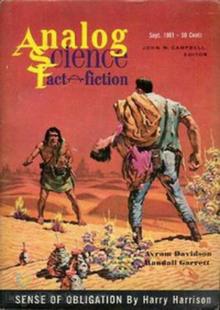 Sense of Obligation
Sense of Obligation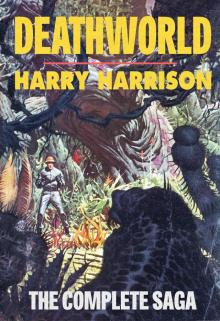 Deathworld: The Complete Saga
Deathworld: The Complete Saga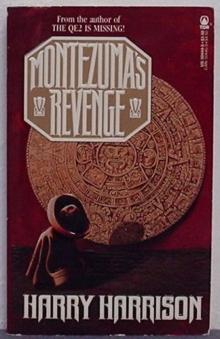 Montezuma's Revenge
Montezuma's Revenge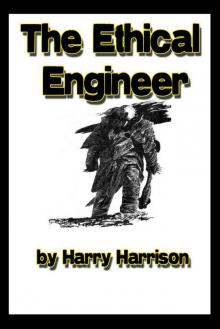 The Ethical Engineer
The Ethical Engineer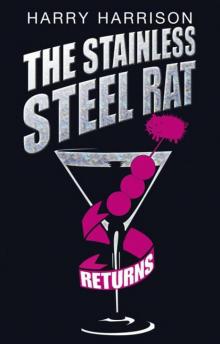 The Stainless Steel Rat Returns
The Stainless Steel Rat Returns The Misplaced Battleship
The Misplaced Battleship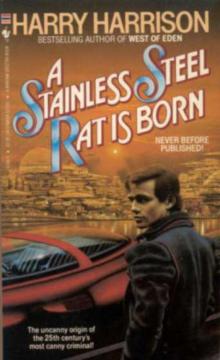 The Stainless Steel Rat is Born
The Stainless Steel Rat is Born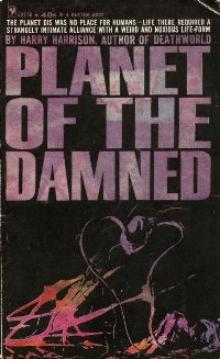 Planet of the Damned bb-1
Planet of the Damned bb-1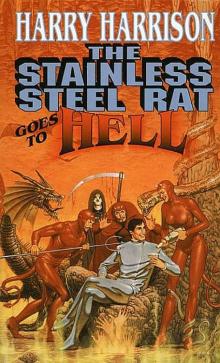 The Stainless Steel Rat Goes to Hell ssr-10
The Stainless Steel Rat Goes to Hell ssr-10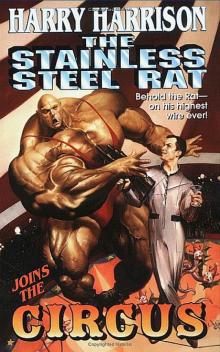 The Stainless Steel Rat Joins the Circus ssr-11
The Stainless Steel Rat Joins the Circus ssr-11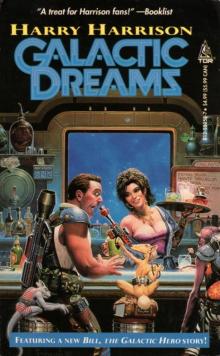 Galactic Dreams
Galactic Dreams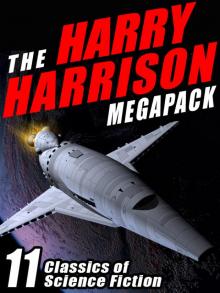 The Harry Harrison Megapack
The Harry Harrison Megapack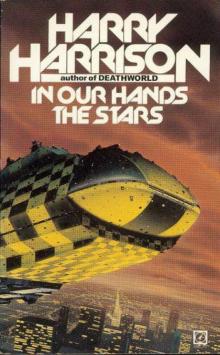 In Our Hands the Stars
In Our Hands the Stars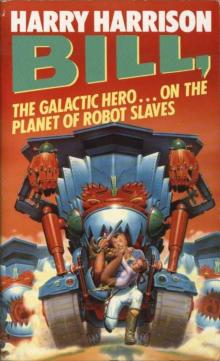 On the Planet of Robot Slaves
On the Planet of Robot Slaves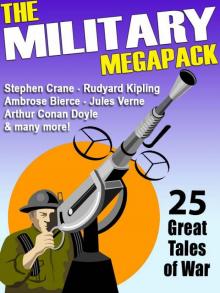 The Military Megapack
The Military Megapack Make Room! Make Room!
Make Room! Make Room! Wheelworld
Wheelworld Winter in Eden e-2
Winter in Eden e-2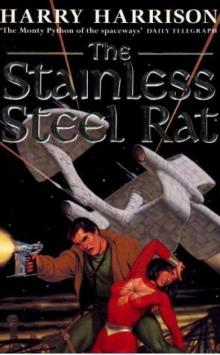 The Stainless Steel Rat
The Stainless Steel Rat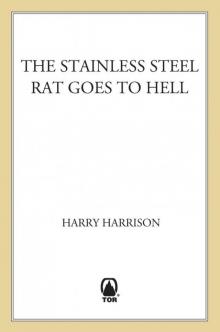 The Stainless Steel Rat Goes to Hell
The Stainless Steel Rat Goes to Hell Harry Harrison Short Stoies
Harry Harrison Short Stoies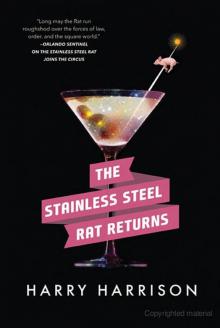 Stainless Steel Rat 11: The Stainless Steel Rat Returns
Stainless Steel Rat 11: The Stainless Steel Rat Returns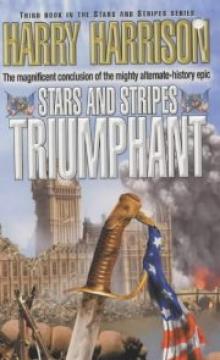 Stars and Stripes Triumphant sas-3
Stars and Stripes Triumphant sas-3 West of Eden
West of Eden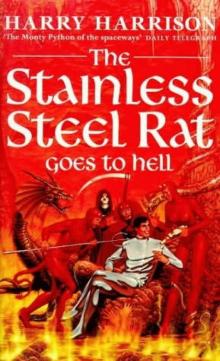 The Stainless Steel Rat Go's To Hell
The Stainless Steel Rat Go's To Hell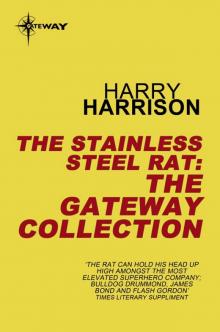 The Stainless Steel Rat eBook Collection
The Stainless Steel Rat eBook Collection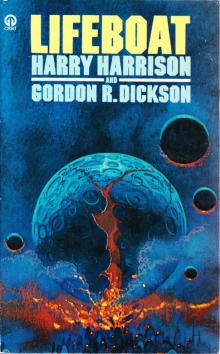 Lifeboat
Lifeboat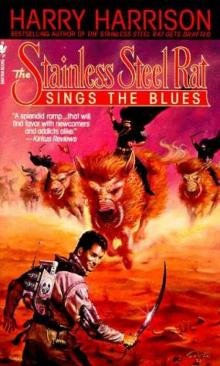 The Stainless Steel Rat Sings the Blues
The Stainless Steel Rat Sings the Blues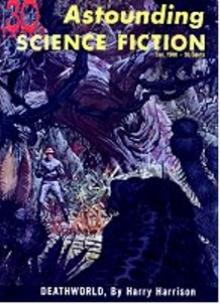 Deathworld tds-1
Deathworld tds-1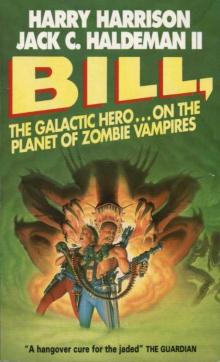 On the Planet of Zombie Vampires
On the Planet of Zombie Vampires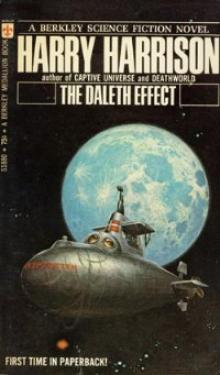 The Daleth Effect
The Daleth Effect On The Planet Of The Hippies From Hell
On The Planet Of The Hippies From Hell The Turing Option
The Turing Option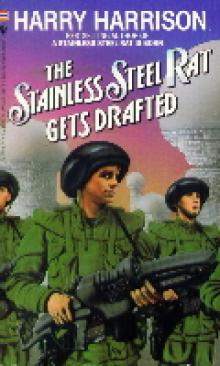 The Stainless Steel Rat Gets Drafted
The Stainless Steel Rat Gets Drafted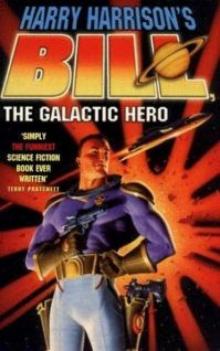 Bill, the Galactic Hero btgh-1
Bill, the Galactic Hero btgh-1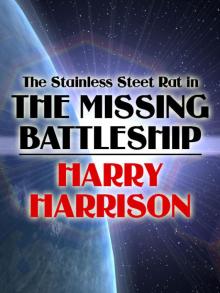 The Stainless Steel Rat in The Missing Battleship
The Stainless Steel Rat in The Missing Battleship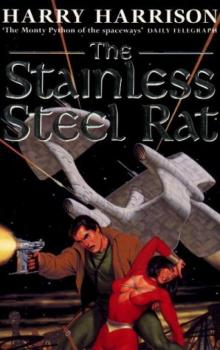 The Stainless Steel Rat ssr-1
The Stainless Steel Rat ssr-1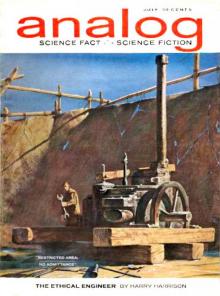 The Ethical Engineer (the deathworld series)
The Ethical Engineer (the deathworld series)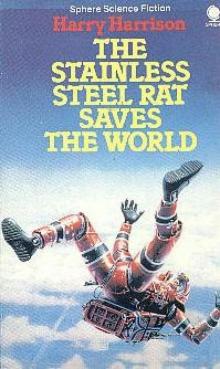 The Stainless Steel Rat Saves the World ssr-3
The Stainless Steel Rat Saves the World ssr-3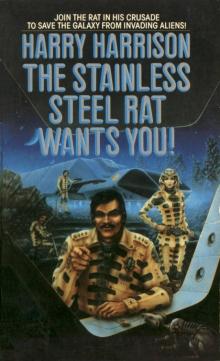 The Stainless Steel Rat Wants You
The Stainless Steel Rat Wants You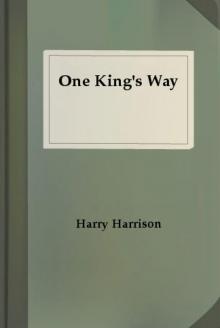 One King's Way thatc-2
One King's Way thatc-2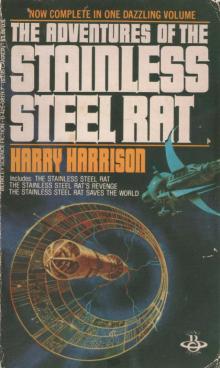 The Stainless Steel Rat Saves The World
The Stainless Steel Rat Saves The World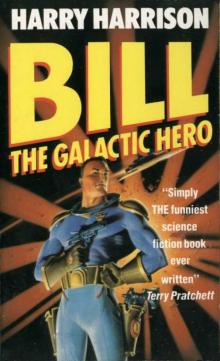 Bill, the Galactic Hero
Bill, the Galactic Hero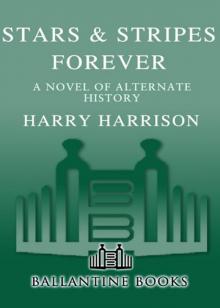 Stars & Stripes Forever
Stars & Stripes Forever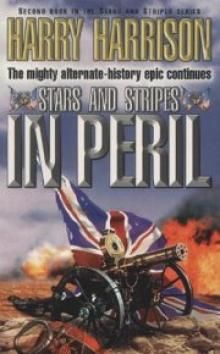 Stars and Stripes In Peril sas-2
Stars and Stripes In Peril sas-2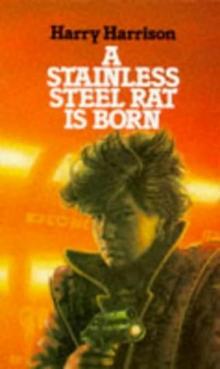 A Stainless Steel Rat Is Born ssr-6
A Stainless Steel Rat Is Born ssr-6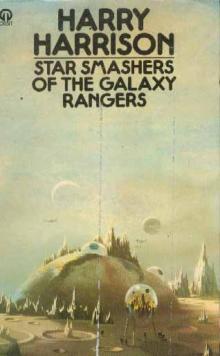 Star Smashers of the Galaxy Rangers
Star Smashers of the Galaxy Rangers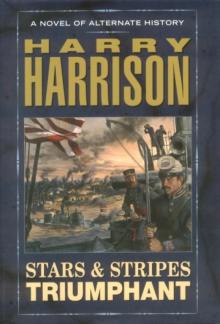 Stars & Stripes Triumphant
Stars & Stripes Triumphant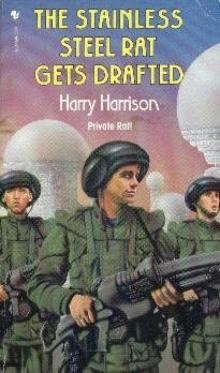 The Stainless Steel Rat Gets Drafted ssr-7
The Stainless Steel Rat Gets Drafted ssr-7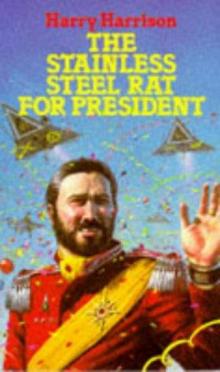 The Stainless Steel Rat for President ssr-5
The Stainless Steel Rat for President ssr-5 The Hammer & the Cross
The Hammer & the Cross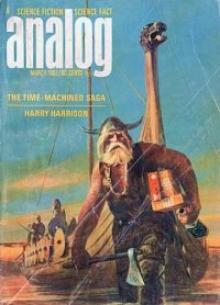 The Technicolor Time Machine
The Technicolor Time Machine The Hammer and The Cross thatc-1
The Hammer and The Cross thatc-1 King and Emperor thatc-3
King and Emperor thatc-3 Return to Eden
Return to Eden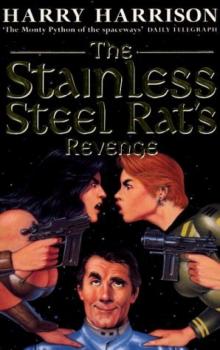 The Stainless Steel Rat’s Revenge ssr-2
The Stainless Steel Rat’s Revenge ssr-2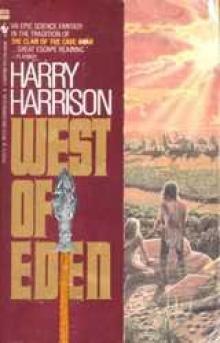 West of Eden e-1
West of Eden e-1 Return to Eden e-3
Return to Eden e-3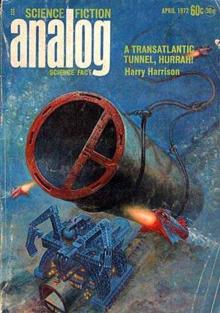 A Transatlantic Tunnel, Hurrah!
A Transatlantic Tunnel, Hurrah!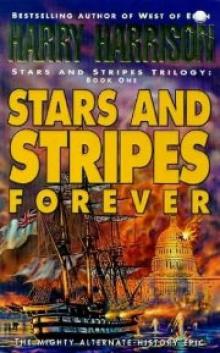 Stars and Stripes Forever sas-1
Stars and Stripes Forever sas-1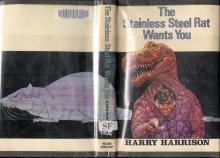 The Stainless Steel Rat Wants You ssr-4
The Stainless Steel Rat Wants You ssr-4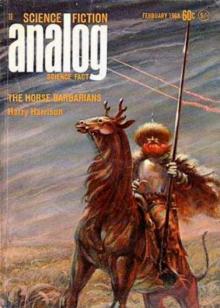 The Horse Barbarians tds-3
The Horse Barbarians tds-3 Planet of the Damned and Other Stories: A Science Fiction Anthology (Five Books in One Volume!)
Planet of the Damned and Other Stories: A Science Fiction Anthology (Five Books in One Volume!) On the Planet of Bottled Brains
On the Planet of Bottled Brains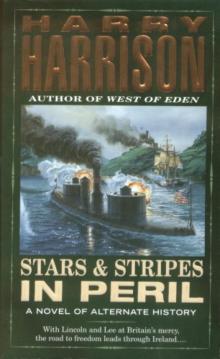 Stars And Stripes In Peril
Stars And Stripes In Peril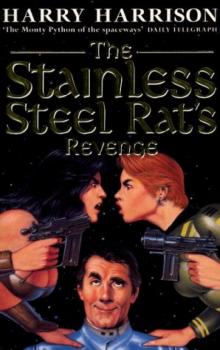 The Stainless Steel Rat's Revenge
The Stainless Steel Rat's Revenge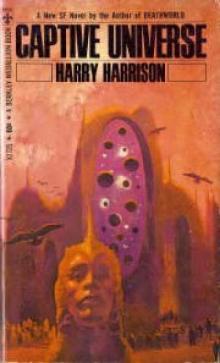 Captive Universe
Captive Universe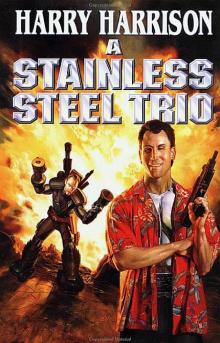 The Stainless Steell Rat Sings the Blues ssr-8
The Stainless Steell Rat Sings the Blues ssr-8 Harry Harrison! Harry Harrison!
Harry Harrison! Harry Harrison! Winter in Eden
Winter in Eden On the Planet of Tasteless Pleasures
On the Planet of Tasteless Pleasures